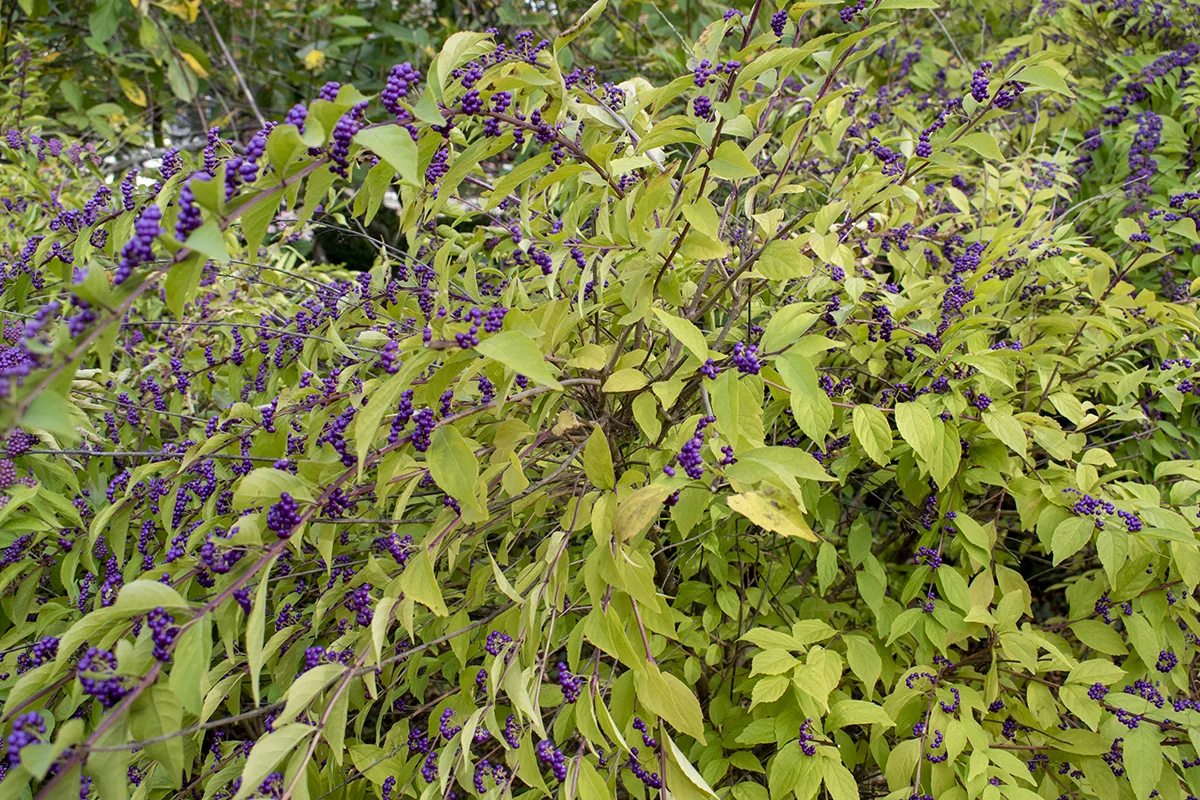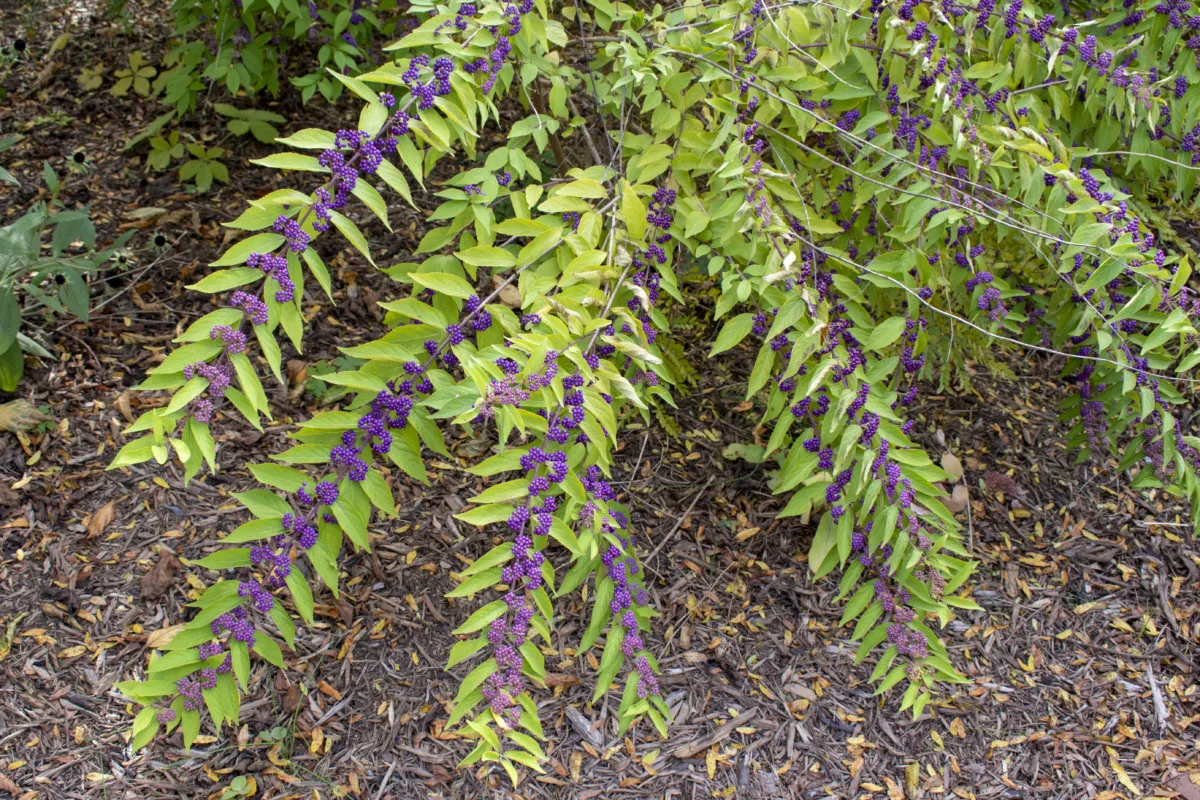
5. Pollinators
If you’re growing a pollinator garden, don’t forget to add a few beautyberry bushes. While the flowers aren’t necessarily anything special to look at, they attract a host of native pollinators. Those dense clusters of flowers can feed an army of pollinators and do.
In the summer, you often hear an audible hum of activity coming from the branches. With the overall decline in insect populations, specifically pollinators, everything we can do to help makes a difference. Native bees and butterflies will appreciate the nectar you provide, but this plant is also great for other wild backyard friends.
6. Beautyberry is Perfect for Attracting Songbirds to Your Yard
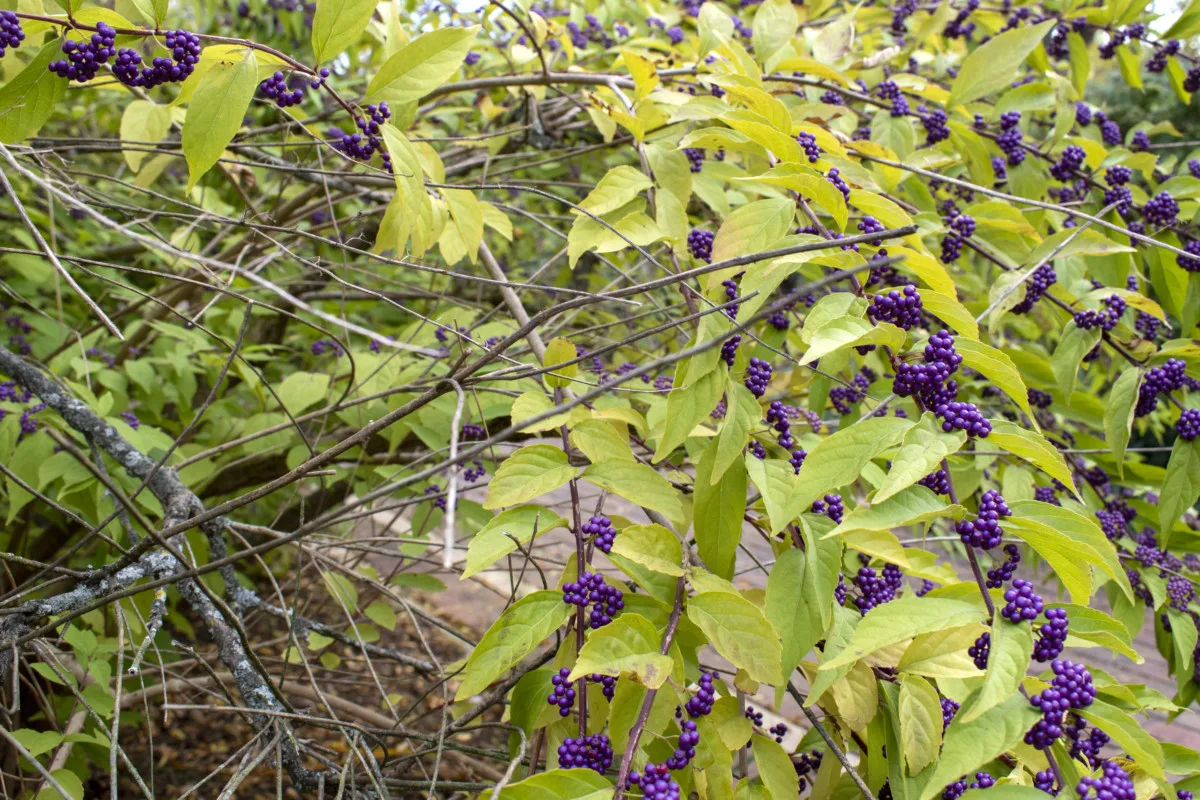
Many of us fell in love with bird watching during the pandemic. And our obsession continues by hanging feeders and adding plants to our landscape to attract birds to our backyards. Beautyberry is an obvious choice for the avid backyard birder.
What makes it great is that the birds usually wait and eat other food sources first, saving the beautyberry until later in the winter. So, you still get to enjoy the gorgeous purple berries during the fall and even after the snow falls, and the birds still have something to eat in the dead of winter.
Giving your feathered friends access to a natural, native food supply is far better for them than the commercial seed mixes that are so popular. Not to mention it’s cheaper for you.
7. You Can Eat Those Pretty Berries
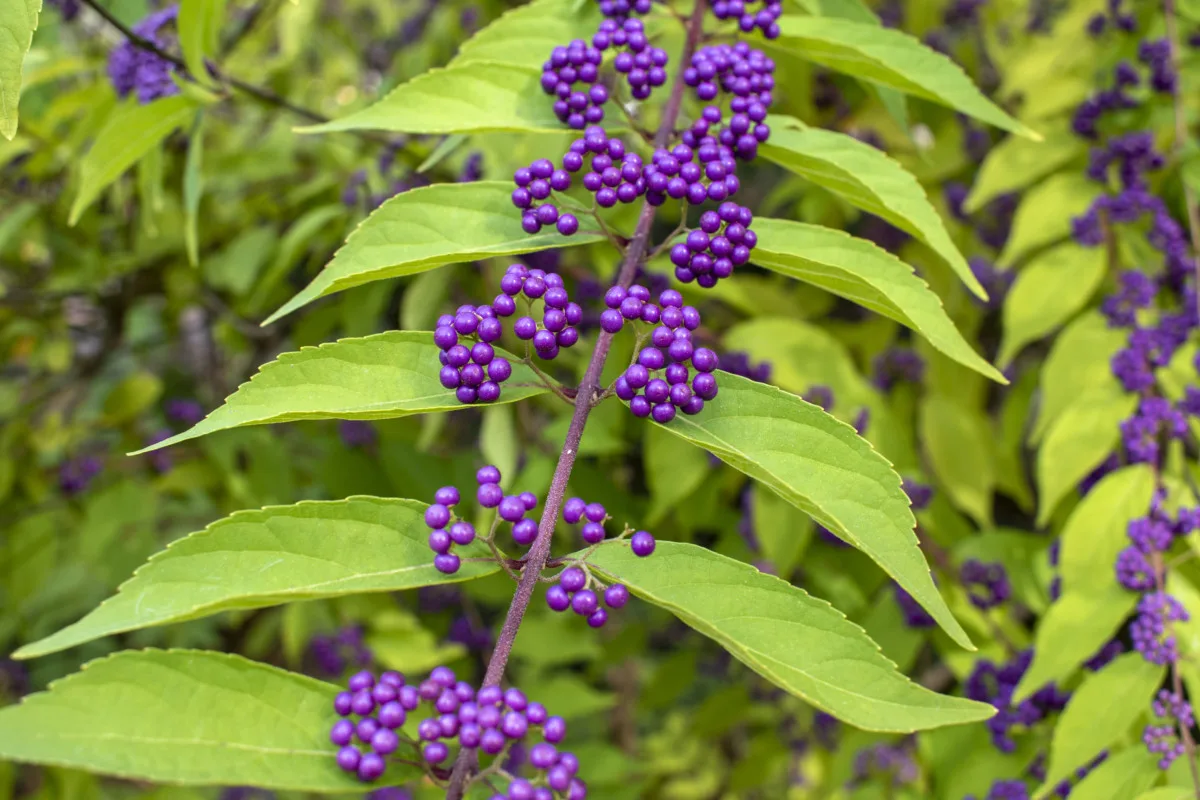
Looking at such a shocking purple, one would think that beautyberries are poisonous. While photographing the bushes for this article, I was stopped three times by people wanting to know what the shrub was and whether it was poisonous.
I told them, “No, in fact, it makes a pretty tasty jam.”
Like many berries, though, eating too many raw can leave you with an upset stomach. Beautyberry shines once it has been cooked into jams, shrubs, pies and even mead.
8. It’s a Natural and Effective Bug Repellant
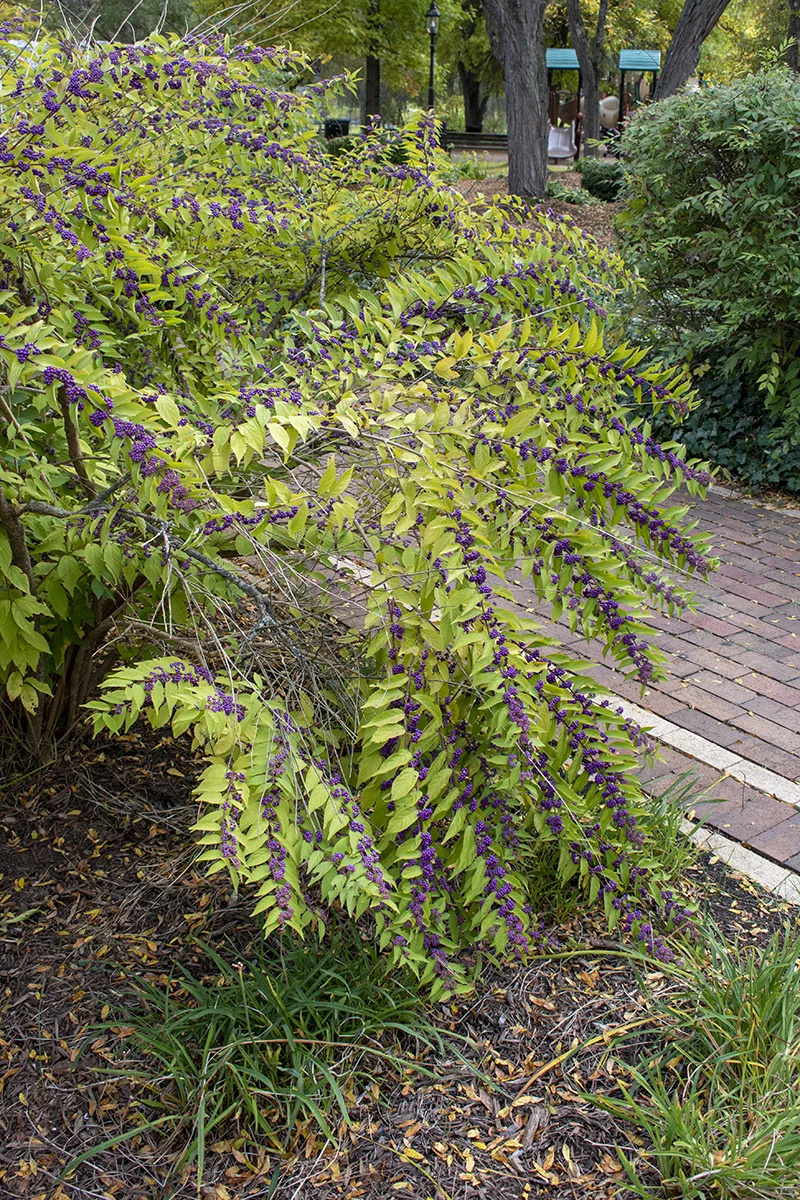
Beautyberry leaves contain a substance called callicarpenol, studied by the University of Mississippi as a natural bug repellent. It’s said to repel mosquitoes, ticks and ants. It’s even said to be as effective in repelling insects as DEET.
In a pinch, you can rub some of the leaves on your skin. But there are quite a few recipes for natural bug repellant that are easy to make.
